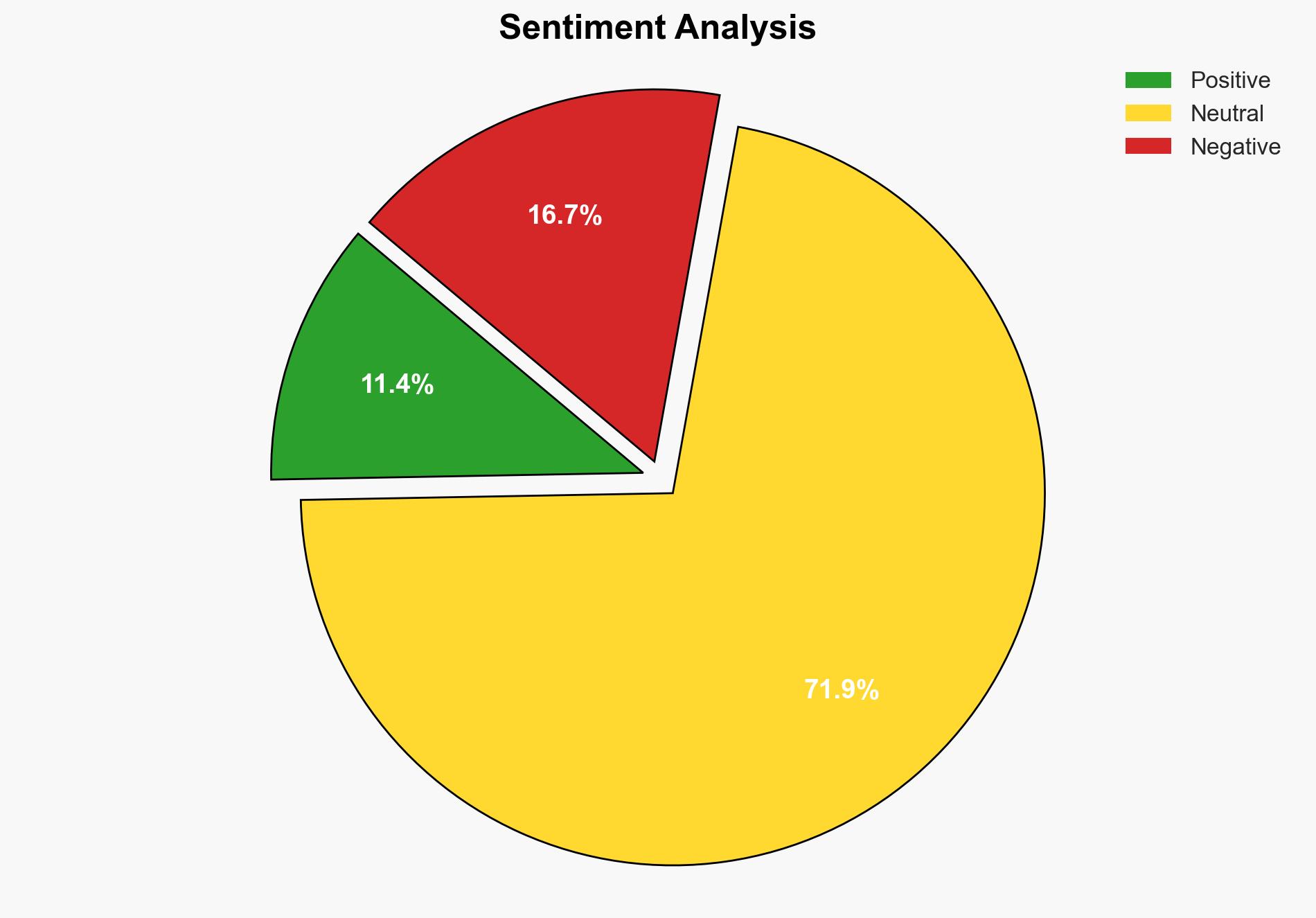Dead seabirds and the stench of fuel the after-effects of the North Sea ship crash – BBC News
Published on: 2025-03-20
Intelligence Report: Dead Seabirds and the Stench of Fuel – After-effects of the North Sea Ship Crash
1. BLUF (Bottom Line Up Front)
The collision between a cargo ship and an oil tanker in the North Sea has resulted in significant environmental damage, including the washing ashore of plastic pellets and dead seabirds along the Lincolnshire coast. Immediate actions are required to address the environmental impact and prevent further damage to wildlife and local communities. Authorities are advised to enhance monitoring and cleanup efforts while investigating the incident’s causes and responsible parties.
2. Detailed Analysis
The following structured analytic techniques have been applied for this analysis:
General Analysis
The collision has led to the release of plastic pellets, known as nurdles, and oil residues along the coastline. Local residents, such as Steven Davison and Stuart Green, have reported the presence of these materials, which pose a threat to wildlife and public health. Conservationists and local authorities are concerned about the ingestion of these pellets by birds and marine life, potentially leading to illness or death. The incident has also sparked discussions about the safety and regulation of maritime operations in the North Sea.
3. Implications and Strategic Risks
The environmental impact of the collision poses significant risks to regional biodiversity, particularly affecting seabirds and marine life. The presence of toxic materials on beaches may deter tourism, impacting local economies. Additionally, the incident highlights vulnerabilities in maritime safety protocols, which could have broader implications for regional stability and economic interests if not addressed. The potential for similar incidents in the future necessitates a review of current safety measures and regulatory frameworks.
4. Recommendations and Outlook
Recommendations:
- Enhance coastal monitoring and cleanup operations to mitigate environmental damage and protect wildlife.
- Conduct a thorough investigation into the causes of the collision and hold responsible parties accountable.
- Review and strengthen maritime safety regulations to prevent future incidents.
- Engage with local communities to raise awareness about the risks associated with the materials and encourage safe practices.
Outlook:
In the best-case scenario, prompt cleanup efforts and regulatory improvements will mitigate environmental damage and prevent future incidents. In the worst-case scenario, continued environmental degradation could lead to long-term ecological and economic consequences. The most likely outcome involves a combination of successful mitigation efforts and ongoing challenges in addressing the root causes of the incident.
5. Key Individuals and Entities
The report mentions significant individuals involved in the incident and its aftermath. These include Steven Davison, Stuart Green, Christine Peters, Tracy Lear, Nikkita Holland, Dennis Simpson, Gill Simpson, Sharon Glenville, Chris Morris, Mark Angelo Pernia, and Vladimir Motin. Additionally, entities such as the East Lindsey District Council and the RNLI are involved in the response efforts.





